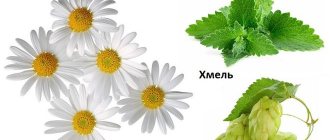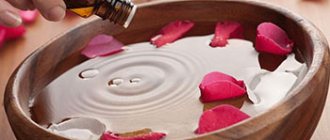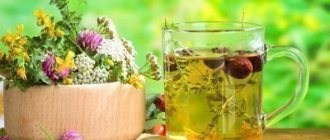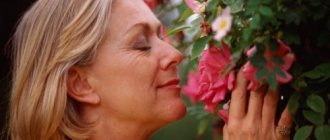The term “insomnia” (insomnia) - in Latin, insomnia, refers to sleep disorders that differ in clinical characteristics and pathogenesis.
This condition is manifested by insufficient sleep duration, difficulty falling asleep, premature awakening, and frequent interruptions of shallow sleep throughout the night.
Since there are many causes of insomnia, the doctor takes into account the entire set of factors when treating. The prescribed healing complex often includes herbal remedies from the traditional medicine base that have hypnotic effects.
Main causes and symptoms of insomnia
Quite often it is not possible to determine the cause of insomnia on your own. Therefore, when the first symptoms appear, you should consult a doctor, since the problem will not disappear, but, on the contrary, will worsen.
The main triggers of insomnia are:
- stress, anxiety;
- fear, for example, of an upcoming important event;
- change of time zone, moving to another city, country;
- consuming caffeine-containing products at night;
- smoking before bedtime, drinking alcoholic beverages;
- overeating at night;
- lack of air in the bedroom;
- conflicts, quarrels, worries;
- age – elderly, children;
- hereditary predisposition;
- inactivity.
The causes of insomnia can be malfunctions of internal organs, for example:
- thyroid gland, hormonal imbalances;
- diseases of the nervous system;
- asthma;
- intoxication of the body;
- cardiovascular diseases.
Insomnia is expressed in the following symptoms:
- superficial sleep;
- lack of sleep for several hours;
- frequent awakenings;
- prolonged process of falling asleep;
- morning weakness, fatigue, feeling of lack of sleep;
- waking up early;
- lethargy, bad mood, inability to perform usual activities;
- falling asleep while doing work;
- inattention, confusion.
What causes sleep disturbance
Many factors can trigger insomnia. According to doctors, today this pathology is caused by the following reasons:
- stress;
- overwork;
- depression;
- mental illness;
- somatic diseases;
- severe kidney pathologies;
- severe pathologies of the cardiovascular system;
- binge eating;
- strong emotional outburst;
- active pastime;
- alcohol abuse;
- taking drugs;
- taking certain medications.
In some cases, to restore sleep, it is enough to simply eliminate the factors that provoke insomnia, while in others, taking medications is necessary to solve the problem.
Range of applications of herbal medicine
Herbal medicine is used as an adjunct to primary drug treatment. The price of herbs is much lower than that of sleeping pills. Plants, due to their healing properties, are suitable for the prevention of respiratory diseases and psychological disorders.
Infusions, aromatherapy, and baths are used to treat diseases in the following areas:
- Cardiology: heart failure, blood pressure disorders, atherosclerosis, varicose veins.
- Pulmonology: bronchitis, pneumonia, laryngitis, tracheitis, ARVI.
- Gastroenterology: gastritis, stool disorders, bloating, heartburn.
- Urology: cystitis, urethritis, pyelonephritis, prostatitis.
- Gynecology: thrush, erosion, inflammation of the ovaries, menopause.
- Endocrinology: diabetes mellitus.
- Pediatrics: heat rash, hyperactivity, teething, colic, diathesis.
For cancer, herbal medicine helps strengthen the immune system, reduces nausea and vomiting, and gives strength during treatment. Also, medicinal plants are used against skin rashes and allergies. Many cosmetic products use herbal extracts, and women apply natural tonics, lotions, masks with the addition of tinctures, decoctions, and oils to their faces.
Sedative herbs are used to normalize sleep and calm the nervous system. Therapy helps relieve tension. People suffering from insomnia, lack of sleep, sleepwalking, nightmares, use herbal baths or tea at night.
Benefits of Herbs
Everything we need to get rid of ailments is provided by Mother Nature. Entire pharmacies grow in forests and meadows that can heal, rejuvenate and improve your health, without causing harm if you use natural medicines wisely. Our ancestors treated numerous diseases in this way. Compared to synthetic drugs, herbs:
- are inexpensive;
- do not cause terrible side effects;
- invariably help with any health problems, including insomnia.
You can make almost any potion yourself from herbs. They are used both separately and in complex therapy. But it is worth considering that among the plants there are also poisonous ones, so it is necessary to observe the exact dosage during treatment. To ensure that natural components do not cause harm, it is recommended to consult a physician before using them.
"Natural Pharmacy": Valerian
Every pharmacy sells an alcoholic infusion of valerian or tablets. But this plant can be grown in a personal plot or in a country house. There is no need to create any special conditions. But you will always have on hand a sufficient amount of dried seeds of the plant, which contains saponins and alkaloids. These substances have a calming and hypnotic effect when taking this herb for sleep.
Like many other drugs, valerian preparations become toxic when the dosage is exceeded. Therefore, it is necessary to adhere to the recipe. To make an infusion, you need to measure out a tablespoon of crushed (fresh or dried) and pour boiling water (200 ml). Leave the product for 15 minutes and strain it. The infusion can be added to tea or simply taken 1 tbsp. spoon three times a day. This reduces anxiety and promotes restful sleep.
General recommendations
Any sleep disturbance first affects a person’s mood and communication skills, he becomes irritable and aggressive. Over time, untreated insomnia leads to the formation of neurosis.
Circadian rhythm disorders can be treated with herbs only in cases where they are primary in nature, i.e. arise due to malfunction of the pineal gland or are associated with a nervous disorder. For diseases of internal organs, which also often causes insomnia, herbal medicine can be part of a comprehensive treatment of the underlying problem.
Herbs that treat insomnia
Chronic insomnia can last for several weeks or months, resulting in poor health. Treatment of the disorder should be comprehensive: lifestyle changes, rest, herbal medicine, medications. Herbs for sleep are prescribed to adults in the presence of stress, nervousness, and excessive anxiety. All these factors prevent you from relaxing and falling asleep peacefully. Medicinal preparations can be purchased at a pharmacy; they are cheaper than medications and safer to use.
Valerian root
Valerian is one of the most famous remedies for insomnia. Numerous studies have shown that it improves the speed of falling asleep, the depth and quality of sleep. However, in order to achieve a positive result, you need to take this remedy for a long time, since beneficial substances accumulate in the body gradually, but two months is the maximum period for daily use of valerian root.
The calming properties of valerian have been known since ancient times. Infusion : infuse 1 tbsp in a thermos. a spoonful of crushed valerian roots in a glass of boiling water for 12 hours. Take 1 tbsp before meals three times a day. spoon. Decoction : 1 tbsp. Pour a spoonful of crushed valerian root into a glass of boiling water and simmer over low heat for 15 minutes. Take the same as the infusion.
Mint and lemon balm
Tea with mint and lemon balm helps well in achieving a peaceful state; it is easy to find in a pharmacy or any grocery store. But if you want to make original tea yourself, then a recipe from Morocco is perfect.
Tea with lemon balm has a pronounced sedative property
Tea : 2 teaspoons of dry or several fresh leaves of peppermint or lemon balm (you can mix them in equal proportions) per glass of milk, boil, remove from heat, cover the dish with a lid and leave to infuse, strain and add honey to the cooled drink to taste. Drink before bed.
Chamomile
Many traditional methods of treating insomnia cannot be done without chamomile flowers. It contains apigenin, an antioxidant with anti-inflammatory and soothing effects. There are several options for its use:
- Flowers (20 g) are steamed with a cup of boiling water and left for half an hour. Take half a cup before meals.
- Add 2 shares of chamomile to 2 shares of cumin and 1 share of valerian roots and steam with water (1 l). Drink it as tea a couple of times daily.
- Herbal pillow: Fill a pillowcase with fragrant meadow hay, including dry chamomile. On such an aroma pillow, sleep will not take long to come.
Lavender
Another well-known natural remedy that reduces stress and promotes deep sleep is lavender. The essential oil of this delicate flower has antidepressant, calming and sedative properties and has been used for therapeutic purposes for centuries.
There are many ways to use lavender. Bath treatments will help you relax - now you can easily find lavender soap and bath salts in stores or make them at home. Essential oil can be added to the aroma lamp or a few drops on the edges of the pillow. A cotton or linen bag of dried flowers can be placed in the closet with bedding or under the pillow.
Lavender helps fight anxiety and emotional stress
Tea: Lavender goes well in tea compositions with chamomile and mint, but you can also prepare a single tea - pour 1 teaspoon of dried flowers into 250 ml of boiling water, cover with a lid, let it brew and strain. This tea will improve the quality of sleep and help treat headaches. Drink: If you are overtired, it is good to prepare milk with lavender and honey - add 1 tbsp to 500 ml of milk. a spoonful of dried flowers, stirring, bring to a boil, remove from heat and let it brew under the lid, strain and add honey to taste. This unusual drink will appeal to both children and adults. It will balance your mood, free your mind from anxious thoughts and give you good dreams.
Oregano
Oregano is a symbol of maternal love and health. This aromatic herb wonderfully relieves nervous tension and helps you fall asleep peacefully even after a hard day at work.
Oregano decoction should be taken before bedtime Decoction : 2-3 teaspoons of crushed dry leaves per glass of water, boil, leave and strain. Drink before bed.
creeping thyme
Creeping thyme has a pronounced hypnotic effect, helps with stress, neurasthenia, and in the treatment of depression and migraines.
Thyme will help you fall asleep well and also relieve stress.
Infusion : 1 tbsp. Pour a spoonful of chopped dry herbs into a glass of boiling water, let it brew and strain. Take 1-2 tbsp three times a day. spoons. Thyme has many beneficial properties, so its scope of application is quite wide. After reading the article Thyme, or creeping thyme: beneficial properties and contraindications for use , you will learn about the timing of harvesting this medicinal plant, as well as what other problems, in addition to poor sleep, it helps to cope with.
Hop tincture
Hop tincture, which has a slight sedative effect, is known as a sleeping pill. In terms of its qualities, hops are close to valerian, but its effect is softened and accessible to everyone.
Powder from hop cones is used as a soothing product for sleep. The pillowcase is filled with cones. Use it only when sleep does not come. At other times, the pillow is kept in the closet, wrapped in cloth.
If sleep patterns are disturbed, the “grandmother’s” method is used: hop cones (20 g) are placed in boiling water (250 ml), wrapped and left for four hours, then the tincture should be strained. Drink the decoction after dinner.
100 milliliters of alcohol are poured into 25 g of hops and kept for about a week in a dark place. Use a spoon twice or thrice a day, the final dose is at night.
Some chopped hop cones are poured with four parts of vodka. The mixture is kept for a couple of weeks. Drink 5 drops diluted with water (20 ml) twice daily before meals.
Salvia officinalis
Hippocrates called sage a “sacred herb.” This plant has a calming effect on the nervous system, helps fight stress, irritability and increased nervous excitability.
A decoction of sage calms the nervous system. Decoction : 1 tbsp. pour a spoonful of crushed dry leaves into a glass of boiling water, simmer over low heat for 10 minutes, leave and strain. Drink 1-2 tbsp. spoons three times a day.
Celery root
Even in the ancient medical books of the ancient Egyptians and Greeks, its healing properties are described. Celery contains many useful substances - vitamins, amino acids, microelements, fiber and essential oils, which help reduce the level of stress hormones in human blood. Eating celery root improves well-being, relieves nervous overexcitation and promotes muscle relaxation, which helps you fall asleep easily.
Celery root contains essential oils that reduce nervous excitement. Infusion : put 30-50 g of chopped celery root in a glass or ceramic bowl and pour 1 liter of chilled boiled water, close the lid, leave for 8-10 hours and strain. Take 1 tbsp. spoon 3 times a day 1.5-2 hours before meals.
Pumpkin
And last, but not least, an interesting and useful plant that deserves attention.
Pumpkin pulp contains many minerals necessary for the body, and the presence of B vitamins has a beneficial effect on the central nervous system and has a mild sedative effect.
Here is one simple recipe - cut 200 g of pumpkin into pieces, boil over low heat until soft (or bake in the oven), drain the water, cool, add honey to taste and take 100 g daily in the evening. You can also drink a glass of pumpkin juice with honey before going to bed - this drink will help relieve stress, and you will have a restful and deep sleep.
Magnesium found in pumpkin pulp and seeds helps produce the hormone melatonin, which regulates sleep cycles and helps you fall asleep.
Pumpkin seeds are an excellent source of magnesium, which helps relieve stress and calms the body. Just one handful of these seeds contains about 150 mg of magnesium, making them one of the richest magnesium foods in the world. Pumpkin seeds can be eaten plain or added to a salad, vegetable stew or cottage cheese.
Of course, everything is good in moderation. And with medicinal plants that have been tested for years, even centuries, if the concentration is exceeded, individual intolerance or concomitant diseases, side effects are possible. If there is any sign of intolerance, use should be stopped immediately.
Motherwort
Motherwort does not cause any particular concern, since we are familiar with this herb from early childhood. Decoctions and infusions of motherwort are recommended as a sedative for newborns. In this case, healing herbs for good sleep are added to the water when bathing babies.
Both for adults and is prescribed not only for insomnia, but also as a sedative for increased excitability, rapid heartbeat and hypertension. A decoction of motherwort is prepared in the following way: dry herb (2 tablespoons) is diluted with a glass of boiling water and left to cool completely. Two reception options are allowed. Either a tablespoon three times a day, or 2 spoons before bed. The infusion can be drunk on its own or added to tea.
Contraindications to herbal medicine for insomnia
- Individual intolerance and allergy to components. This is the main contraindication; the others do not apply to all plants.
- Pregnancy and breastfeeding. The range of herbs is very limited, especially in the first trimester. Consult your doctor before use.
- Children under 12 years of age for most herbs. Alcohol tinctures are prohibited for up to a year. Don't take herbs lightly! Thus, mint can cause a reflex cessation of breathing in an infant, and chamomile in high doses depresses the nervous system and reduces muscle tone. Consultation with a pediatrician is required before admission!
Calming tea before bed, sedative herbs, aromatherapy or herbal baths - choose and combine what suits you. Plants will help in complex therapy; if you take synthetic sleeping pills, then it is possible to reduce the dose of the latter (after consultation with your doctor!). Sleepy herbs will be an excellent prevention of sleep disorders due to stress and depression. Take care of yourself and get enough sleep!
Let's follow the rules!
Sleepy herbs are also medicine and the attitude towards them should be appropriate. If it is naive to think that plants cannot cause harm, then you are mistaken. A few simple rules will help you avoid mistakes:
1. Individual approach
The initial state of the body, the presence of concomitant diseases, medications taken, age, gender - everything should be taken into account when choosing a remedy, its dose and duration of use. The best herbs for insomnia for children: chamomile, fireweed, mint (melissa), oregano and thyme. There are age restrictions up to 3 years. For men, hops, oregano, St. John's wort, and hawthorn have proven themselves well. Motherwort, valerian, and lemon balm are suitable for insomnia for the elderly.
2. Dosage regimen
It must be there, just like when taking any medicine. Different sedative herbs (collections) may have slightly different dosage regimens. For example, valerian infusion can be taken 3 times a day (insomnia combined with anxiety) or 2 times in the afternoon (long-term sleep disorder). Most infusions are taken half an hour before meals.
3. Course of treatment
Medicinal herbs for insomnia give a gradual effect, often noticeable after a week of use. Therefore, the minimum duration of the course is 10 days, the maximum can stretch up to several months. Taking it from time to time will not bring any effect. If you have sleep disorders, you should not drink the same plant or collection for too long; change it to other suitable options.
We also recommend that you read the article: Sleep EEG – why is it carried out and how informative is this study?
4. Quality of raw materials
Pharmacy products are tested and are rarely of poor quality; do not forget to check the expiration date. If you decide to prepare raw materials yourself, then take into account the timing and place of collection. It must be environmentally friendly (not near roads, enterprises, factories). When purchasing from private individuals, pay attention to the color and smell (mold gives a characteristic aroma). Rub the plant, if it crumbles almost into dust, it means it has been stored for a long time.
5. Control of the result
Do the sleep herbs you choose (or are prescribed) help? Always evaluate the effect during the treatment phase. This will help you understand if you are on the right track. There are many unfortunate examples where people, having a serious illness, deliberately refused medical help in favor of herbs. Or, on the contrary, an incorrectly selected mixture does not help well, which is projected onto all sedative herbs.
Herbal remedies for insomnia
Medicinal herbs for sleep need to be properly combined and prepared. Most of them contain essential components, which easily evaporate when brewed in boiling water. Therefore, all collections must be infused in a tightly closed container.
Fees should not include too many components. When combining 2-3 complementary plants, the effectiveness of the product will be higher. If the collection does not work very well or has an unpleasant odor (this happens with decoctions with valerian), you can choose other components with a similar effect.
It is easy to prepare the following medicines at home to restore healthy sleep:
- Oregano, mint and chamomile. Mix 2 parts of dry oregano herb, 1 part peppermint and 2 parts chamomile flowers. The collection should be stored in a closed jar. For brewing, take 2 tbsp. l. composition and pour 2 cups of boiling water, leave under the lid for 20-25 minutes. You need to take the decoction 3 times a day, dividing the entire amount into equal portions. Instead of oregano, if necessary, you can take thyme, which has the same properties. You should not take the medicine if you have low blood pressure or are pregnant.
- Hawthorn, valerian and motherwort. Make a collection of equal parts of hawthorn berries or flowers, valerian root and motherwort herb. The easiest way to prepare an infusion is in a thermos: put 1 tablespoon of crushed raw materials in a container, pour 1 glass of boiling water and let it brew for 3 hours. Divide the tea into 2 doses and drink 1 time in the middle of the day and 1 time 30-40 minutes before bedtime.
- Valerian, chamomile and lemon balm. Take equal parts of crushed valerian rhizome, chamomile herb and lemon balm. For brewing use 1 tbsp. l. for 1 glass of hot water. Leave the broth in a water bath for 20 minutes. Strain and add honey or sugar when serving. Drink 4 times a day, 0.5 cups.
- Hops and chamomile. To reduce anxiety and have difficulty falling asleep, you can make a mixture of 1 part hop cones and 2 parts chamomile. The medicine is brewed at the rate of 1 tbsp. l. collection per 1 glass of hot water. Infuse it in a thermos or in a water bath for 1 hour, strain and take for insomnia that accompanies menopause.
- Valerian rhizomes. For those who benefit from valerian, but its smell is unpleasant, the folk method of taking a decoction of rhizomes is suitable. Dry crushed root (2 tbsp) is steamed in water (0.5 l) for 3 hours. The finished broth is filtered and taken before bed, adding 2 tbsp. l. into a glass of warm milk.
Dear readers! We strongly recommend that you consult a doctor before taking medications or self-medicating. There are contraindications.
For children
A calming drink based on medicinal herbs to normalize sleep can also be used in childhood. It is allowed to prepare it either from only one component or use a herbal mixture.
At the pharmacy you can buy ready-made herbal tea, taking into account the age of the child:
- 0-4 months: fennel tea without any additives. The product improves the baby's night sleep, prevents the development of intestinal colic;
- 4-12 months: in addition to fennel, you can use chamomile, or combine both components;
- 12-24 months: the list expands with the introduction of motherwort, lemon balm and sage;
- 2-5 years: the child is allowed to brew valerian and thyme (St. John's wort);
- 5-7 years: it is allowed to use linden blossom and put a little honey in the tea if the baby is not allergic to this product.
It must be remembered that the child should drink soothing tea constantly.
Since herbs do not act immediately like medicines, but have a cumulative effect, the drink should be given before bed.
You can make banana tea for your child for insomnia. All you need is one banana and boiling water. The fruit must be thoroughly washed and both ends cut off. Pour boiling water over it and leave for 10 minutes. Then drain the water and give it to drink an hour before bedtime. To enhance the effect of tea, the baby can eat a banana.
At the pharmacy you can buy ready-made soothing teas, depending on the age of the baby. Hipp drinks with a calming effect from a German manufacturer received good recommendations. The product is presented in a wide range. It contains only natural ingredients and is completely sugar free.
Evening Tale tea also received excellent reviews from parents. It contains peppermint, anise and lavender.
For expectant mothers
Soothing herbal tea before bed while pregnant should be used with caution. Many herbs that have a sedative effect are contraindicated for use during this period.
And if a woman has difficulty falling asleep and plans to use herbal tea to improve sleep, then she must first consult with a gynecologist leading the pregnancy.
Soothing herbal teas are often seen as an alternative to sleeping pills. But they may have their own contraindications, so before starting to take drinks, it is advisable to consult with your doctor.
Pumpkin pulp decoction
Pumpkin has many beneficial properties; it is also included in folk remedies for sound sleep. Recipes for pumpkin infusions are absolutely simple. The product is non-toxic and can be used for a long time. Warm pumpkin broth with honey is prescribed even to children over 3 years old.
According to the recipe, the pumpkin should be peeled and washed, then grate 250 g of the pulp on a coarse grater and place in an enamel pan. This amount of pumpkin will require 1 liter of water. The mixture should be brought to a boil and removed from the stove. Then let it brew for 35-40 minutes, 100 g of the product should be taken in the evening, about an hour before bedtime. For children, the dosage is reduced to 50 g. The effect of the decoction begins on the 3-4th day of administration.
Aromatherapy
Aromatherapy will not only help relieve symptoms, but also eliminate the causes that caused them. Moreover, such treatment will not cause any side effects.
Application of essential oils
In cases of severe nervous tension, which results in sleep disturbances, baths with the addition of essential oils will help. Just a few drops of your favorite essential oil (cedar, fir or lavender) can perform a miracle - the body will relax, anxiety will go away, negative emotions will disappear, a feeling of lightness and joy will appear, and at night the long-awaited sound and restful sleep will come.
Herbal cushion
During the lifetime of our great-grandmothers and great-grandfathers, there were no medicinal sedatives or sleeping pills. They coped with sleep disorders with the help of Mother Nature. An excellent remedy for insomnia is a herbal pillow, which includes sleeping pills and sedative plants. If you fill a pillowcase with a mixture of herbs, for example, oregano, St. John's wort, thyme, meadow geranium, lemon balm, mint, hop cones, etc., then you can forget about any insomnia for a long time.
Herbal baths
The same can be said about herbal baths. They will help relieve tension, calm your nerves and improve sleep. For example, if you add a decoction of wild rosemary, a water infusion of valerian roots, sweet clover herb, thyme, hop cones and wormwood herb to the water, then such a bath will quickly bring both your nerves and sleep back to normal.
Peony
Among the huge variety of varieties and types of peony, there is one that is used to prepare a natural remedy for insomnia. This peony, which is popularly called marina, like other herbs for good sleep with insomnia, has several useful qualities. A decoction of it helps reduce various phobias, eliminates neurasthenia, improves the vascular system, and eliminates hypochondria.
The recipe is a little more complicated and will require time and concentration. You will need 60 g of crushed roots and 600 g of boiling water. It is necessary to pour boiling water so that the marin root continues to boil as quickly as possible. The broth should simmer quietly until the liquid in the pan reduces by 3 times in volume. The remaining 200 ml is filtered and cooled. The product is taken strictly before bedtime. The period of admission may be 30-40 days, then a break will be needed. The use of this herb for sleep in children is not recommended. Taking decoctions of marina root is very useful, but requires certain precautions.










